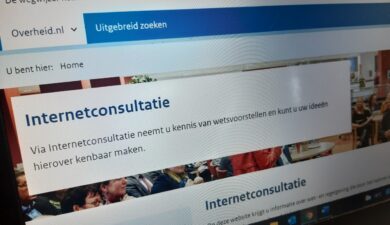Compliance with financial sanctions should not lead to violation of civil rights
In August, Privacy First participated in the consultation On the proposal for the International Sanctions Act. Part of this includes person-centred sanctions ('targeted financial sanctions'), which target, among others, people who have been put on sanctions lists by the EU or the Netherlands for terrorism or other unlawful activities and whose assets must be blocked. Companies must screen all their customers and customer relations against those public lists, known as 'sanctions screening'.
Privacy First participated in the consultation because of our focus area financial privacy.

Harm to innocent citizens
Privacy First points out that ordinary citizens can also face person-specific sanctions, for example because their name resembles the name of someone on the European or Dutch sanctions list. It is common knowledge that people can be inconvenienced and harmed by sanctions screening.
This is evidenced by cases dealt with by the Human Rights Board, such as the recent decision on ING Bank, which discriminated against two customers by blocking and verifying payments because of a non-Dutch-sounding name. The nuisance and damage is also highlighted in a report which was commissioned by the Ministry of Finance, the report Survey of citizens' perceived discrimination in the provision of services by banks and payment institutions of 19 April 2024, which was announced last May.
Counterbalance needed
While companies are incentivised under the threat of fines to comply with sanctions rules, there is no mechanism to incentivise companies to treat their customers properly, respect fundamental rights and comply correctly with data protection rules. This is important to ensure that citizens have/gain trust in government and to ensure that every citizen can play a role in society (prevention of 'dropping out').
Privacy First believes that with large and sweeping powers for companies and government, comes strong protective measures for the benefit of citizens, as mistakes can be made when using those sweeping powers. This should focus not only on protecting consumers, but also on the impact on small and medium-sized enterprises.
In its consultation response, Privacy First called for measures to prevent harm to innocent citizens, including the establishment of an independent financial ombudsman, low-threshold access to the independent courts and special measures for people who have a name similar to that of someone on a sanctions list.
The full text of our consultation participation is HERE .
